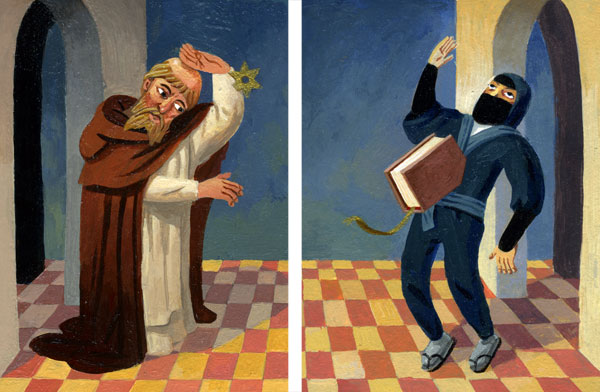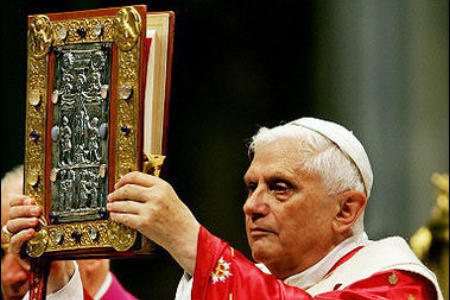Sunday Lectionary: Bread from Heaven
I’ve been on vacation this week so my notes are late and not quite as polished as they are normally.
Eighteenth Sunday in Ordinary Time: 2nd August, 2012
Our Readings this week focus again on the subject of sacred food.
In the First Reading, we read how the Israelites were fed with manna in the desert. The manna is also the subject of this week’s Psalm, as psalmist proclaims “The Lord gave them bread from heaven”. These are also the words quoted by the crowd who come to Jesus after “The Feeding of the Multitude”. The crowd comes expecting another free meal, but rather than filling their stomachs, Jesus directs them towards deeper spiritual realities, declaring Himself to be “the bread of life” and that “whoever comes…will never hunger, and whoever believes…will never thirst”.
Our understanding of the Second Reading may be illuminated by considering the rite of Baptism in the early centuries of the Church. In preparation for the Sacrament, someone wishing to be baptised would receive a period of instruction. Afterwards, he would then arrive at the Baptismal pool and shed himself of his clothes, symbolically demonstrating that he wished to “put away the old self of [the] former way of life, corrupted through deceitful desires”. He would then descend into the baptismal pool where he would be washed in the name of the Father, Son and Holy Spirit, “renewed in the spirit of [his] mind”. He would then ascend and be clothed in a white garment to show that he had “put on the new self, created in God’s way in righteousness and holiness of truth”. After having been washed in the waters of regeneration, this newly-born Christian would be admitted to the liturgy of the Eucharist where he would finally receive the bread of life.
We too have been washed in the waters of baptism, we too have been admitted to the altar. Let us live our lives this week in the “holiness of truth” . We do not receive simply the “bread of angels”, but something even greater, “the bread of life” Himself.
When, through the hand of the priest, you receive the Body of Christ, think not of the priest which you see, but of the Priest you do not see. The priest is the dispenser of this food, not the author. The Son of man gives Himself to us, that we may abide in Him, and He in us – Alcuin




